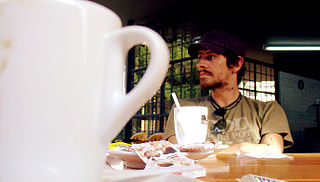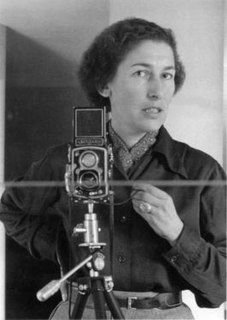A Quote by John Lahr
A prose writer never sees a reader walk out of a book; for a playwright, it's another matter. An audience is an invaluable education. In my experience, theatre artists don't know what they've made until they've made it.
Related Quotes
Every reader, as he reads, is actually the reader of himself. The writer's work is only a kind of optical instrument he provides the reader so he can discern what he might never have seen in himself without this book. The reader's recognition in himself of what the book says is the proof of the book's truth.
There are many readers of the book, who don't know anything about the authors and the artists. There is more than one author. It doesn't matter, if you can't make the reader dive into the story and surround him with that environment and those characters. That's an experience that lasts longer than figuring out who did what. I think that's what makes our working relationship better, it helps us to make a book that feels unique and not like different voices.
Most of the people dishing out judgment have no working experience of the theatre, have not written a professional play, a sketch, or even a joke; have never worked in a theatre, taken an acting class, or published any extended piece of work. They are creative virgins; everything they know about theatre is book-learned and second-hand.
My readers have to work with me to create the experience. They have to bring their imaginations to the story. No one sees a book in the same way, no one sees the characters the same way. As a reader you imagine them in your own mind. So, together, as author and reader, we have both created the story.
On a more technical level, a story takes a lot of words. And to generate words and phrases and images and so on, that will compel the reader to continue reading - that stand a chance of really grabbing a reader - the writer has to work out of a place of, let's say, familiarity and affection. The matrix of the story has to be made out of stuff the writer really knows about and likes. The writer can't be stretching and (purely) inventing all the time. Well, I can't, anyway.
Mathematics is not only real, but it is the only reality. That is that entire universe is made of matter, obviously. And matter is made of particles. It's made of electrons and neutrons and protons. So the entire universe is made out of particles. Now what are the particles made out of They're not made out of anything. The only thing you can say about the reality of an electron is to cite its mathematical properties. So there's a sense in which matter has completely dissolved and what is left is just a mathematical structure.
I realized early in my career that precisely what one reader doesn't like is what another reader loves. Collectively, any writer's audience presents a mishmash of expectations that can never all be met. What one-tenth of my readership may not be crazy about the other nine-tenths savors. The moment you start altering a book or a painting or any type of art as if it's a public collaborative, you crucify its soul. I'd rather irritate a few people and delight a lot than touch no one." ~ Karen Marie Moning



































